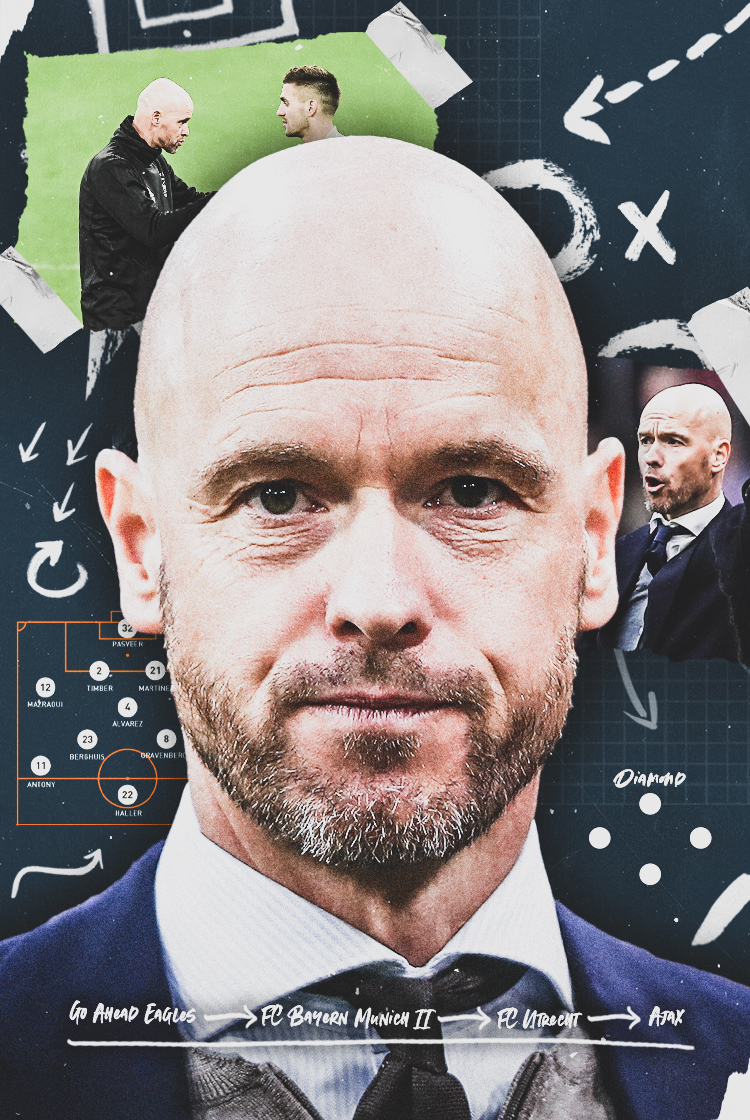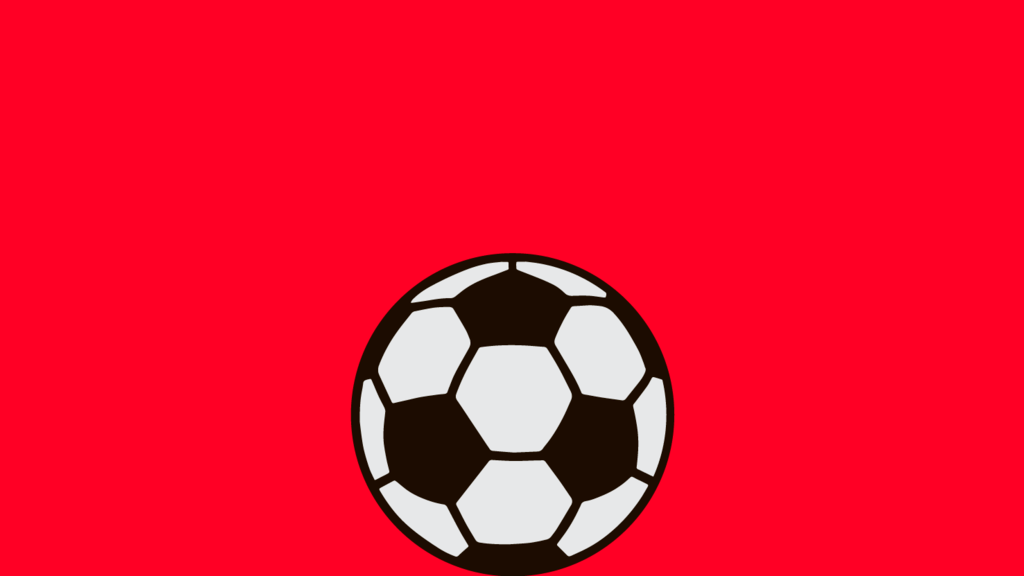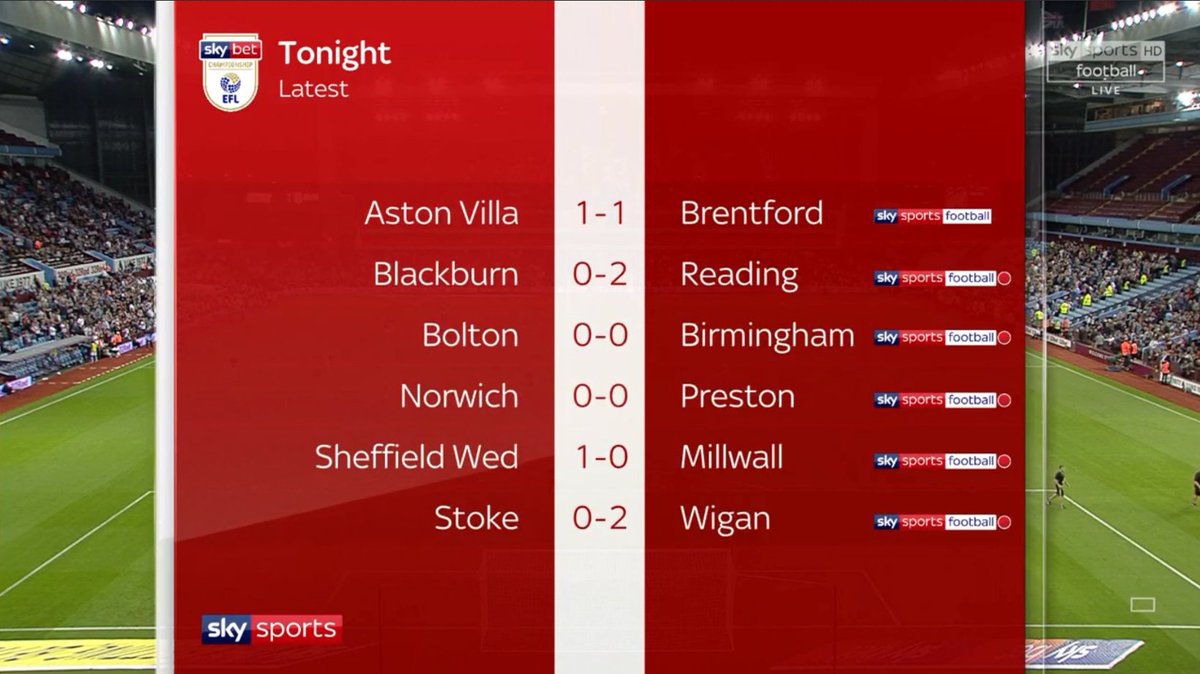
Okay, here is a comprehensive 1200-word article profiling Erik ten Hag, focusing on his coaching philosophy, journey, and the challenges he faces.
Erik ten Hag: The Architect of Discipline and Development
In the volatile world of modern football management, where instant gratification often trumps long-term vision, Erik ten Hag stands as a defiant figure. The Dutch tactician, currently at the helm of one of the world’s most scrutinized clubs, Manchester United, has carved out a reputation as a meticulous planner, a demanding leader, and a coach deeply committed to a clear, possession-based, and high-pressing philosophy. His journey from the modest pitches of the Netherlands to the grand stage of the Premier League is a testament to his unwavering belief in his principles and his relentless pursuit of perfection.
I. The Formative Years: Building the Foundations
Born in Haaksbergen, Netherlands, in 1970, Erik ten Hag’s playing career was relatively unassuming. A defensive midfielder, he spent the majority of his time in the Dutch Eredivisie, primarily with FC Twente, De Graafschap, RKC Waalwijk, and FC Utrecht. While not a star player, his intelligence and understanding of the game were evident, hinting at a future beyond the pitch.
The transition to coaching began almost immediately after his retirement in 2002. He first served as a youth coach at FC Twente, learning the intricacies of player development from the ground up. His early coaching roles included assistant manager positions at Twente under Fred Rutten and later Steve McClaren, where he was exposed to different coaching methodologies and a more international perspective. However, it was his pivotal role as assistant manager at PSV Eindhoven, once again under Rutten, that further solidified his tactical understanding and man-management skills.
A critical, yet often understated, period in Ten Hag’s development came between 2013 and 2015 when he took charge of Bayern Munich’s reserve team, Bayern Munich II. This move, unusual for a promising Dutch coach, was highly deliberate. It placed him under the direct influence of Pep Guardiola, who was then managing Bayern’s first team. Ten Hag meticulously observed Guardiola’s training sessions, his tactical meetings, and his approach to player development and game management. This period was transformative, deeply embedding the principles of positional play, high pressing, and structured attacking football into Ten Hag’s own burgeoning philosophy. He saw firsthand how an elite coach implemented a clear vision at the highest level, a lesson he would carry with him.
II. The Rise Through Dutch Ranks: Proving the Concept
Ten Hag’s first taste of head coaching came in 2012 with Go Ahead Eagles in the Dutch second division (Eerste Divisie). In his solitary season there, he achieved immediate success, guiding the club to promotion back to the Eredivisie after a 17-year absence. This demonstrated his ability to instill a winning mentality and tactical cohesion quickly.
His impressive work earned him a move to FC Utrecht in 2015. Over two and a half seasons, Ten Hag transformed Utrecht from a mid-table side into a consistent challenger for European qualification. He implemented a clear tactical identity: an attacking, possession-based style with a strong emphasis on pressing and fluid movement. He also proved adept at developing players, identifying raw talent and refining it within his system. Under his guidance, Utrecht finished fifth and then fourth in the Eredivisie, securing Europa League qualification. This period was crucial; it showed he could build a successful team, not just achieve a one-off result, and validated his refined coaching philosophy on a larger stage.
III. The Ajax Mastermind: Defining a Legacy
The success at Utrecht inevitably attracted the attention of the Dutch giants, Ajax. In December 2017, Ten Hag was appointed manager, stepping into the shoes of one of European football’s most storied clubs, renowned for its commitment to attacking football and youth development. It was at Ajax that Ten Hag truly cemented his reputation as one of Europe’s elite coaches.
He inherited a talented squad but one that had underperformed on the European stage for years. Ten Hag immediately set about instilling his detailed methodology. His Ajax team played with a modernized version of Total Football:
- Positional Play (Juego de Posición): Players occupied specific zones but were given freedom to interchange, creating numerical overloads and passing triangles to progress the ball.
- High Pressing and Counter-Pressing: Upon losing possession, the team would aggressively hunt the ball back, suffocating opponents and forcing errors high up the pitch.
- Verticality and Penetration: While possession was key, it was never sterile. The aim was always to move the ball forward quickly and create goal-scoring opportunities, often through intricate passing combinations and clever runs behind the defence.
- Player Development: Crucially, Ten Hag continued to excel at nurturing young talent. Frenkie de Jong, Matthijs de Ligt, Hakim Ziyech, Donny van de Beek, Noussair Mazraoui, Jurrien Timber, and later Antony and Lisandro Martinez, all flourished under his guidance, becoming highly sought-after players in Europe. He challenged them, provided clear pathways for improvement, and integrated them seamlessly into his demanding system.
The pinnacle of his tenure came in the 2018-19 season. Ajax, with a youthful squad, embarked on an unforgettable Champions League run. They eliminated reigning champions Real Madrid and a formidable Juventus side, captivating Europe with their fearless, dynamic football, before being cruelly knocked out by Tottenham Hotspur in the semi-finals in the dying seconds. This campaign not only showcased Ten Hag’s tactical brilliance and the team’s incredible spirit but also marked Ajax’s return to the top echelon of European football.
Under Ten Hag, Ajax won three Eredivisie titles (2019, 2021, 2022) and two KNVB Cups (2019, 2021). His legacy at Ajax is one of revitalisation: he re-established their domestic dominance, restored their European prestige, and continued their tradition of producing world-class talent, all while playing an attractive and effective brand of football.
IV. The Manchester United Challenge: A New Frontier
In May 2022, Erik ten Hag took on arguably the biggest challenge of his career: managing Manchester United. He arrived at a club in disarray, burdened by years of underperformance, a fragmented squad, and a pervasive culture of mediocrity. His appointment was seen as a deliberate step by the club to usher in a new era of discipline, structure, and a clear footballing identity – qualities Ten Hag embodies.
His initial months at Old Trafford were a baptism of fire. Early defeats highlighted the immense task at hand. However, Ten Hag quickly asserted his authority. He famously implemented strict disciplinary measures, demanding high standards from every player, regardless of their stature. He wasn’t afraid to drop high-profile players who didn’t adhere to his demands, sending a clear message that the team’s needs superseded individual egos.
In his first season (2022-23), Ten Hag oversaw a remarkable transformation. After a shaky start, United found their rhythm, demonstrating glimpses of his tactical principles. They became more defensively solid, improved their pressing, and showed greater control in possession. Crucially, he oversaw key signings like Lisandro Martinez and Casemiro, who brought the aggression, quality, and leadership the squad desperately needed. The season culminated in a Carabao Cup triumph – United’s first trophy in six years – an FA Cup final appearance, and a third-place finish in the Premier League, securing Champions League qualification. It was a season that instilled renewed hope and belief among the fanbase.
However, the second season (2023-24) proved far more challenging. A relentless injury crisis, particularly in key defensive positions, severely disrupted continuity and performance. The team struggled for consistency, facing intense scrutiny from media and fans alike. Despite the difficulties, Ten Hag maintained his stoic demeanor, often emphasizing the underlying issues (injuries, squad imbalance) and his long-term vision. He continued to champion young players, giving debuts to several academy graduates, echoing his developmental philosophy. The season’s end, marked by an unexpected FA Cup triumph over rivals Manchester City, once again showcased his resilience and ability to deliver when it mattered most, even amidst adversity.
V. The Ten Hag Coaching Philosophy: Core Tenets
Erik ten Hag’s coaching philosophy is built upon several non-negotiable pillars:
- Tactical Precision and Adaptability: He is a meticulous planner, obsessed with details. His teams are always well-drilled, understanding their roles in and out of possession. While he has a preferred style, he has also shown a capacity to adapt to opponents and circumstances, as evidenced by some pragmatic approaches in his first season at United.
- Demanding Standards and Discipline: Ten Hag expects absolute commitment and professionalism. He is renowned for his intense training sessions, his focus on fitness, and his zero-tolerance policy for complacency or unprofessional conduct. He believes that high standards are the bedrock of success.
- Player Development and Improvement: A core tenet of his philosophy is the belief that every player can improve. He invests time and effort in individual coaching, analyzing weaknesses and providing pathways for growth. This extends beyond youth players to seasoned professionals.
- Possession with Purpose: His teams aim to dominate possession, but not for its own sake. Every pass, every movement, is designed to create an advantage, destabilize the opponent, and progress the ball into dangerous areas.
- Aggressive Pressing and Counter-Pressing: Defensive intensity is paramount. His teams are drilled to win the ball back quickly and high up the pitch, turning defensive actions into immediate attacking opportunities.
- Mental Fortitude and Resilience: Ten Hag projects a calm, often stern, exterior, but he instills a strong mental toughness in his players. He demands they fight for every ball, maintain focus under pressure, and bounce back from setbacks.
VI. Conclusion: The Unwavering Visionary
Erik ten Hag is more than just a football manager; he is an architect of culture and a purveyor of a distinct footballing philosophy. His journey from the lower leagues to the very pinnacle of club football has been characterized by consistent success, tactical innovation, and an unwavering commitment to his principles.
At Manchester United, he faces the ultimate test: transforming a behemoth of a club, steeped in history but bogged down by recent failures, into a consistent title challenger. The pressure is immense, the scrutiny relentless, and the challenges multifaceted – from squad reconstruction and injury management to navigating the complex dynamics of a global institution.
Yet, through it all, Ten Hag remains steadfast. His belief in his methods, his dedication to developing players, and his insistence on discipline and high standards are his defining characteristics. Whether he ultimately achieves the long-term success he craves at Old Trafford will determine his legacy, but there is no doubting Erik ten Hag’s profound impact on modern football, a coach who embodies the spirit of hard work, tactical intelligence, and an unyielding will to win. His story is far from over, and the football world continues to watch intently.



